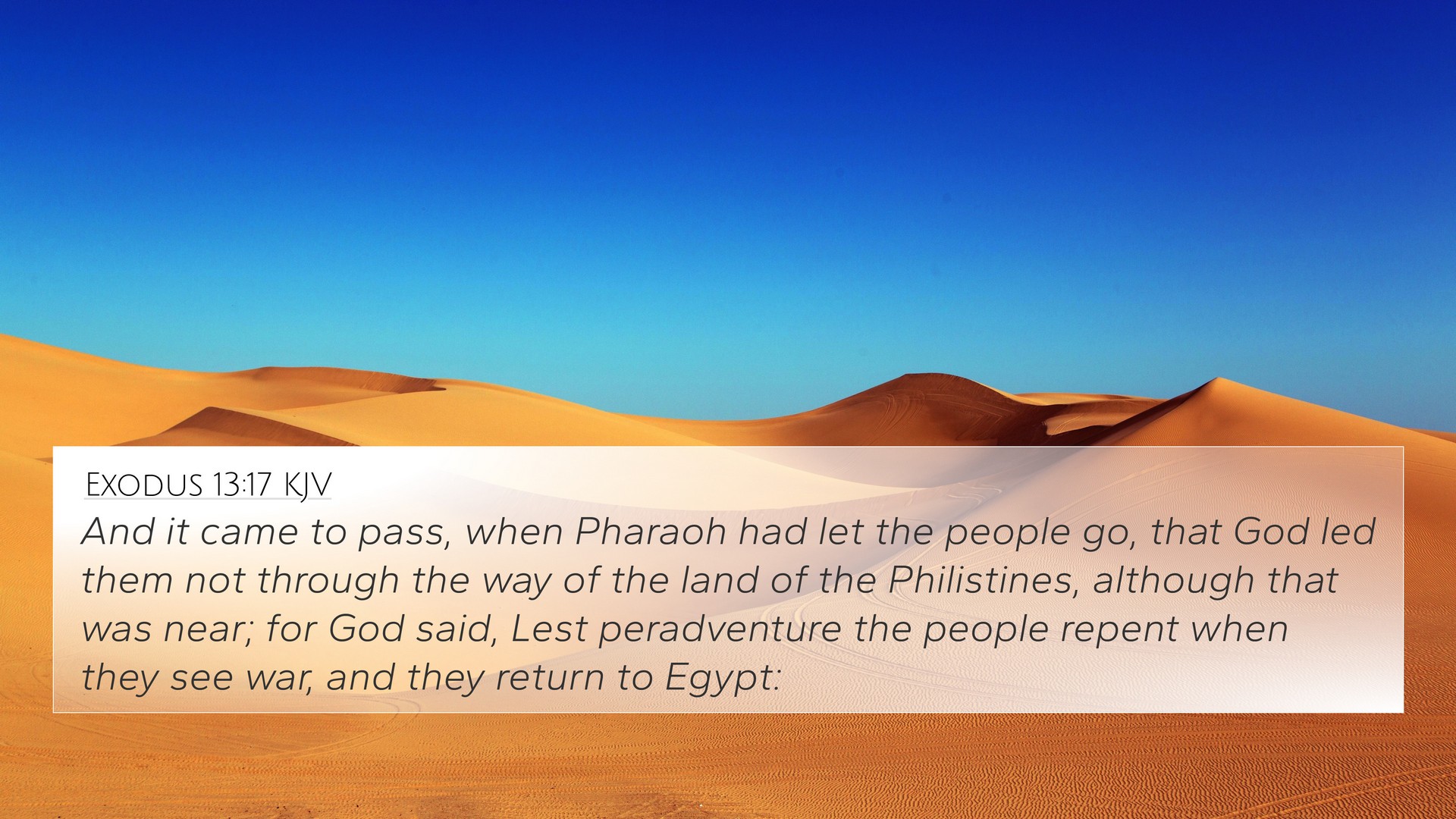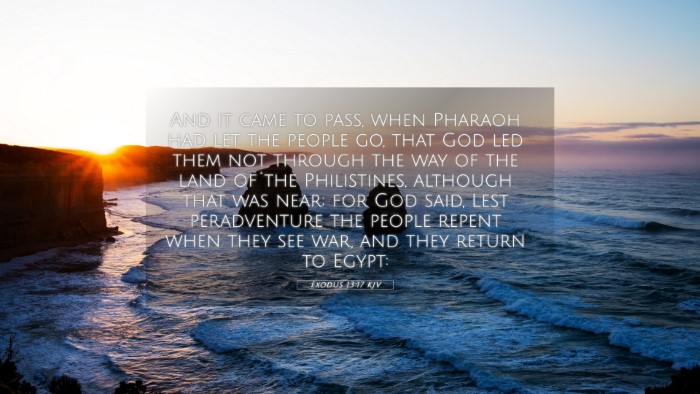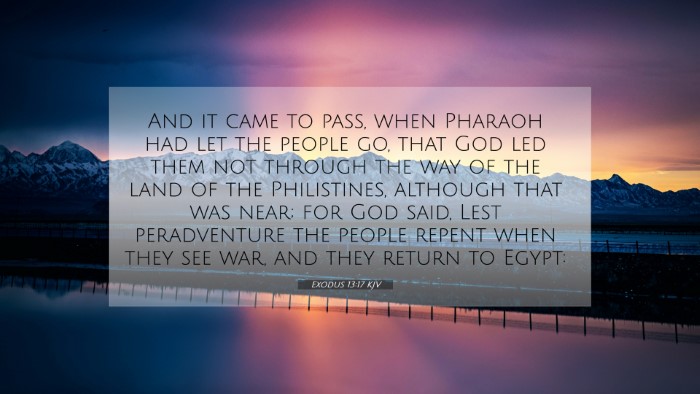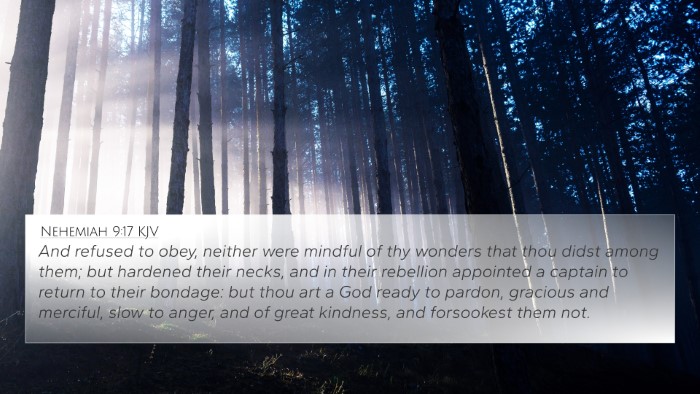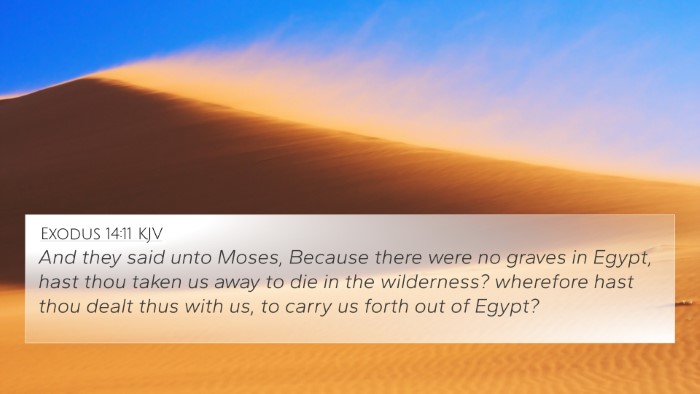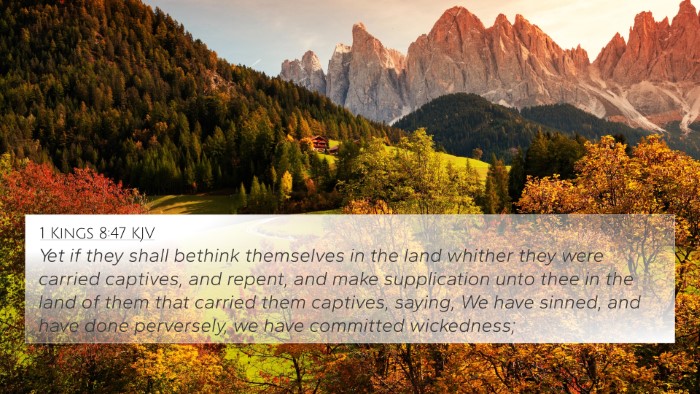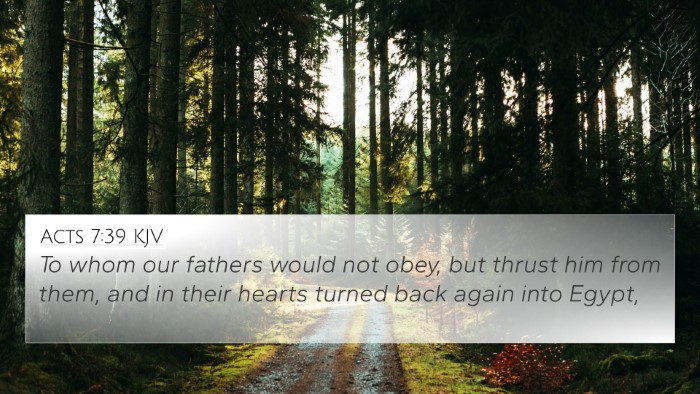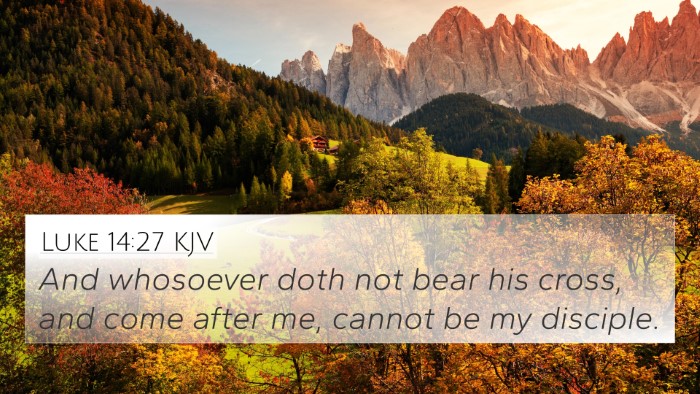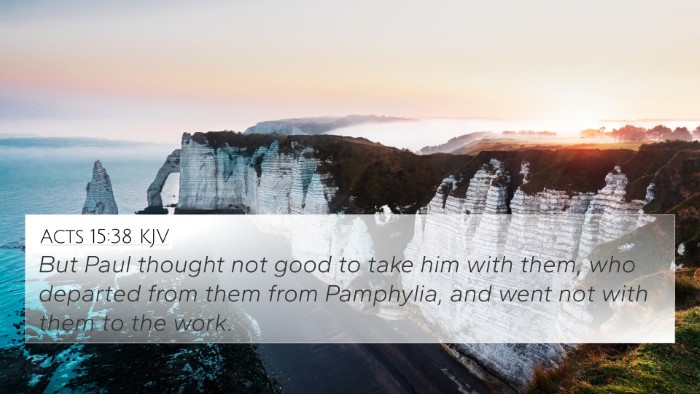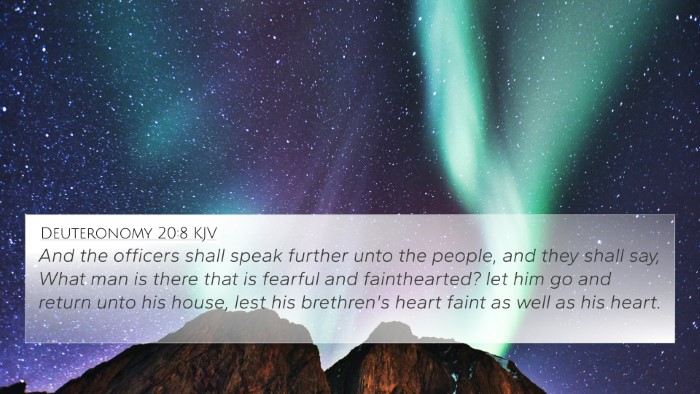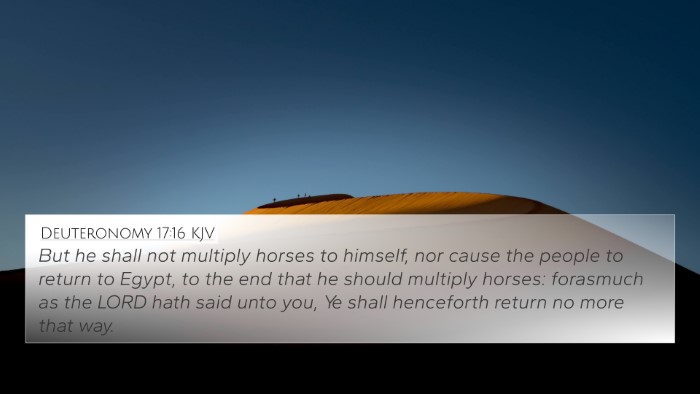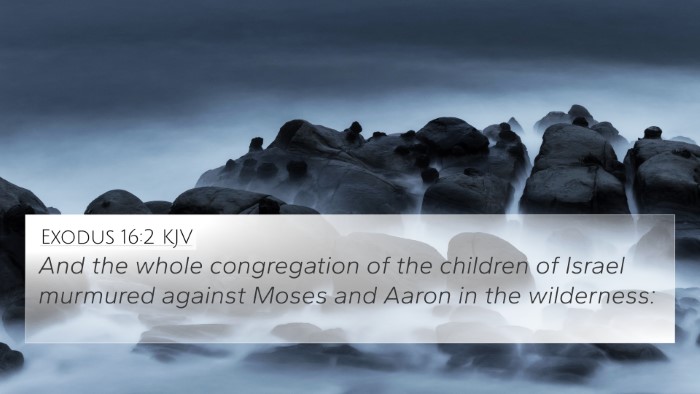Understanding Exodus 13:17
Exodus 13:17 (KJV): "And it came to pass, when Pharaoh had let the people go, that God led them not through the way of the land of the Philistines, although that was near; for God said, Lest peradventure the people repent when they see war, and they return to Egypt."
Summary of Meaning
This verse captures a pivotal moment in the Exodus narrative, detailing God’s strategic decisions in leading the Israelites to freedom. Rather than taking the shortest route through the land of the Philistines, which would expose them to potential conflict and fear of returning, God chose a different path. This demonstrates God’s foresight and care for His people, emphasizing themes of divine guidance and protection.
Insights from Public Domain Commentaries
- Matthew Henry: Henry interprets this verse as evidence of God's wisdom in guiding the Israelites. He notes that the divine decision to avoid a direct confrontation with the Philistines illustrates God's understanding of human frailty. The Israelites, newly freed from slavery, were not yet prepared for warfare, and God knew their hearts would drive them back to Egypt at the first sign of danger.
- Albert Barnes: Barnes emphasizes the importance of God's leadership during this journey. He notes that even though the shorter route would have made more sense logistically, God intentionally guides His people in a way that would develop their faith and dependence on Him. This suggests a broader theme of spiritual formation in the journey of faith.
- Adam Clarke: Clarke discusses the geographical implications of the route chosen. He explains that while the way of the Philistines was the direct path to Canaan, it was also fraught with challenges. God’s choice reflects His knowledge of what is best for His people, prioritizing their spiritual readiness over quick convenience.
Cross-references Related to Exodus 13:17
This verse is interconnected with several other scriptures that illuminate its meaning and implications. Here are some key cross-references that analysts and scholars often highlight:
- Genesis 15:13-14: God foretells the oppression of Israel and their eventual deliverance, paralleling the themes of suffering and salvation present in Exodus.
- Exodus 14:13-14: Here, God reassures the Israelites during their encirclement by the Egyptians, further showcasing His protective nature.
- Deuteronomy 1:30-31: Moses recalls God’s past actions and promises of protection, promoting a narrative of faithfulness and guidance.
- Psalm 32:8: "I will instruct you and teach you in the way you should go; I will guide you with my eye." This verse reflects the theme of divine guidance present in Exodus 13:17.
- Isaiah 43:16-19: God’s power to lead and deliver His people is echoed in the prophetic assurances of newfound paths and unexpected deliverance.
- Hebrews 11:29: This New Testament reflection on faith reinforces the significance of the Israelites' journey through the Red Sea, a direct result of God’s protection noted in Exodus.
- Matthew 2:13-15: The flight into Egypt symbolizes God's protective guidance over His people, resonating with the themes in Exodus 13:17, where God preserves His people from potential threats.
Thematic Connections
Exodus 13:17 serves as a profound testament to several overarching biblical themes:
- Divine Guidance: God's leadership is a central theme in both the Old and New Testaments, emphasizing how He directs His people according to His plans.
- Human Frailty: The Israelites were not ready for a military confrontation, pointing to the vulnerabilities that can hinder spiritual progress and obedience.
- Preparation and Development: God’s avoidance of immediate conflict serves as a metaphor for the preparation necessary for the challenges of faith, showing that spiritual maturity can require time and divine strategy.
Practical Application and Reflection
As we reflect on Exodus 13:17, consider the following:
- Recognizing God's Leading: Are you attentive to the ways God might be directing your life, especially when paths seem uncertain?
- Understanding Spiritual Readiness: Much like the Israelites, we often face circumstances that test our faith. How can you prepare spiritually to meet challenges without turning back to old fears?
- Trusting God's Timing: In moments of waiting or detours in life, remember that God knows the path best. Trust in His timing as you navigate life’s challenges.
Conclusion
Exodus 13:17 presents an essential narrative about God’s protective leadership in the Israelites’ transition from slavery to freedom. By exploring various commentaries and cross-referential scriptures, we can deepen our understanding of how God cares for His people, providing wisdom and guidance even when the journey seems long or fraught with potential danger. Embracing this truth can encourage believers today to seek and follow God’s leading in their own lives.
